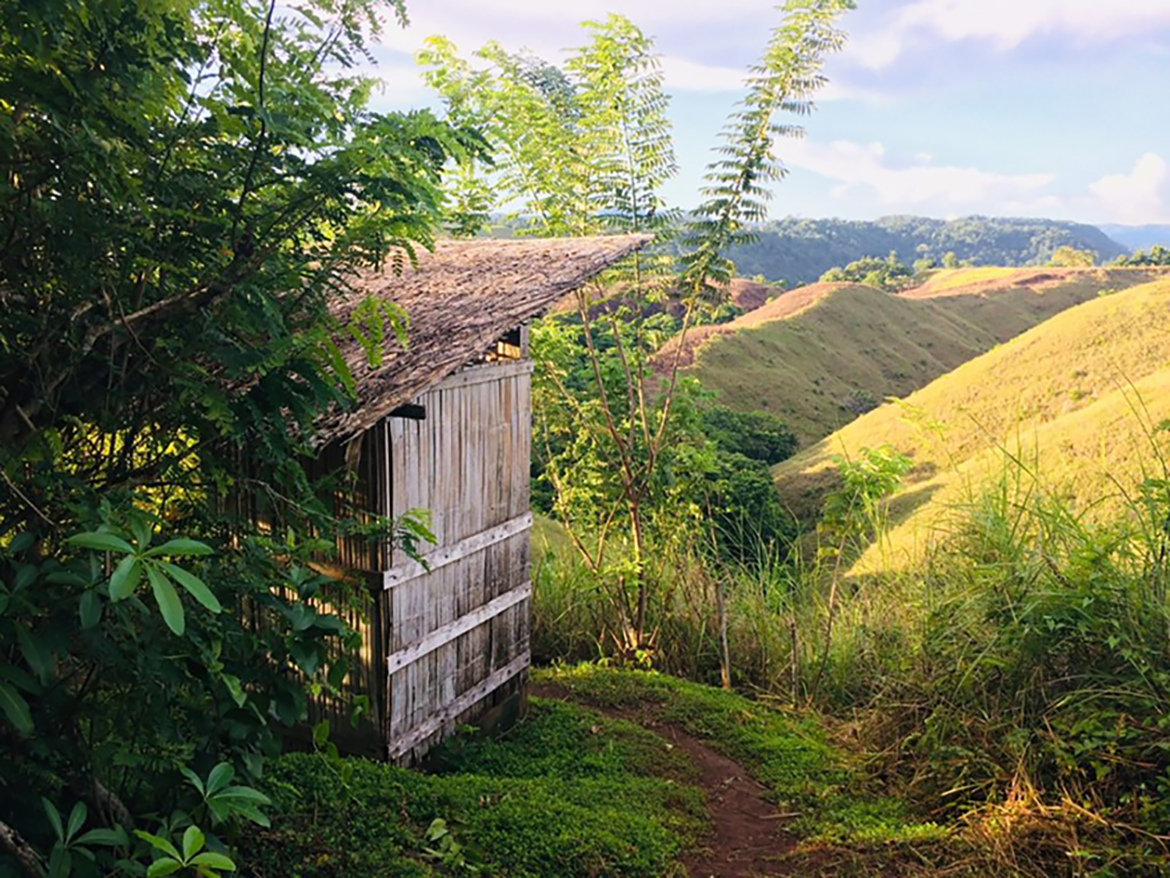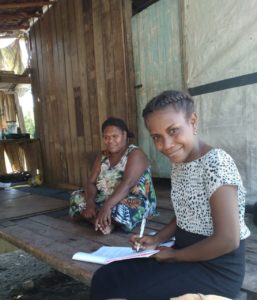
- Research project
- – Western Pacific

By Rosie Sanderson,
Read Time: 489 words, about 5 minutes.
The Safe-Child Faeces Management (CFM) researchers from the Solomon Islands National University (SINU) recently returned from visiting communities north west of the capital of Honiara on their second round of formative research data collection. Our team was welcomed into the villages to conduct over 90 different research gathering activities that will inform the co-design of community interventions that promote safe child faeces management practices across the country.
Our purpose-built research tools were designed around the Evo-Eco model of behaviour change and Behaviour Centred Design. According to researchers at the London School of Hygiene and Tropical Medicine, who are partnered with the International WaterCentre (IWC) and SINU on this project, our brains have evolved to provide adaptive behavioural responses to rapidly changing or complex environmental conditions (Aunger & Curtis, 2014). This means behaviour is a flexible and adaptive response to changes to these conditions. Our research tools were intended to allow community members to express the motives, habits, settings, and societal norms that influence how they currently manage their children’s faeces, and how things have changed over time. We also asked questions around local epistemologies, or ‘ways-of-knowing’ to better understand where knowledge comes from and how trust in knowledge is developed.
The researchers surveyed mothers, fathers, and grandmothers with children under 5 years old, and conducted key informative interviews with community leaders. The team used storytelling, picture prompt cards, and appreciative inquiry to connect with research participants. We also asked questions to better understand how Community-Led-Total-Sanitation (CLTS) had impacted each community, to help inform the sorts of CFM interventions that could be effectively integrated into the national CLTS program.
Our purpose-built research tools were designed around the Evo-Eco model of behaviour change and Behaviour Centred Design. According to researchers at the London School of Hygiene and Tropical Medicine, who are partnered with the International WaterCentre (IWC) and SINU on this project, our brains have evolved to provide adaptive behavioural responses to rapidly changing or complex environmental conditions (Aunger & Curtis, 2014).

Families in Guadalcanal reported a mix of CFM practices and routines, including disposal in toilets, burying, and throwing in the bush, mangroves or on rubbish heaps. Mothers and fathers were motivated by a desire to do the best for their child and their health (nurture motive), as well as disgust of an unclean environment and, occasionally, a desire to fit into the norms of the community. An important theme that many community members discussed was gender roles and the gendered division of labour in their communities, with much of the childcare and washing duties reported as the responsibility of women.
We will now analyse the data in consultation with our research partners to in preparation for co-design of CFM programs in the Solomon Islands with CSO partners and government representatives. The research team is working with a Solomon Islands gender expert to help ensure this next phase of intervention design does not inadvertently increase the burden on women.
CFM: The Solomon Islands Infant and Child Faeces Management project is managed by the International WaterCentre at Griffith University and delivered with our research partners Solomon Islands National University, and London School of Hygiene and Tropical Medicine.
Research Funding:
This research is funded by the Australian Aid’s Water for Women Fund. Link: https://www.watercentre.org/research/research-impacts/promoting-safe-child-faeces-management-in-solomon-islands/